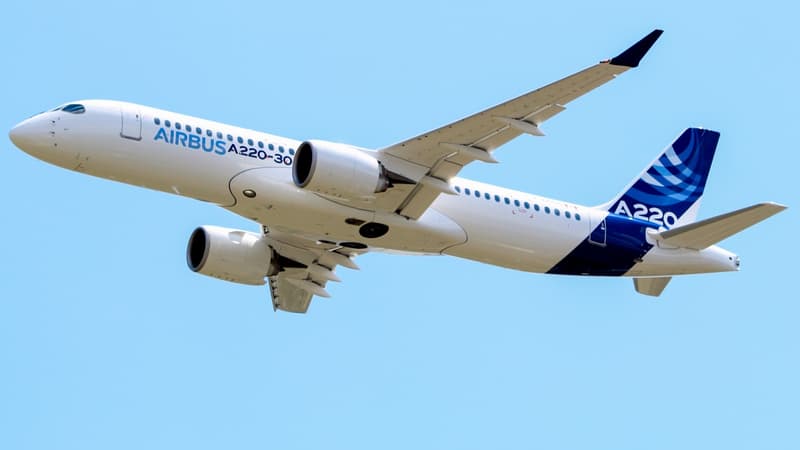During the presentation of the annual results of the French aeronautical sector, the president of Gifas and Chief of Airbus Guillaume Faury worried: due to a “unstable” environment, it is “very difficult to make decisions”. He indicates the “considerable waiting -and see” in industrial investments since the beginning of the year, in fact braking the growth of the sector.
Replicate against US measures
Interpreted by AFP to discover what was the position of the sector in the Trade War, Guillaume Faury spoke about the disagreement five years ago in the World Trade Organization (WTO) between the European Union and the United States: Europe “established its own equivalent customs rights on Boeing aircraft” imported from the United States after seeing 10%, 15% in the air delivered to the United States to the United States.
After this confrontation, customs tasks had been “restored,” he said.
In the case of maintaining current customs tariffs of 10% for the products imported from the European Union, or a 20% increase, “the responses that will be implemented will inspire those who worked five years ago,” said Guillaume Faury.
If the negotiations in progress “had no positive success, I imagine what will be, and this is what we want, the establishment of reciprocal customs duties in the planes to force a higher level of negotiation,” he told AFP.
Civil aircraft, under construction or repair, have been exempt from Customs rights since the agreement signed in 1979 by Europe and the United States within the GATT (General Agreement on Rates and Commerce, which gave birth to the WTO in 1995).
The measures decided by Donald Trump will have the consequence that all products (whose aircraft) imported from Europe to the United States will have to pay a 10% surcharge, which could increase to 20% after the 90 -day stay announced by the US president on April 9 to negotiate commercial treaties.
In case of retaliation measures, the European sector would like The AFP sector.
A devastating effect on the supply chain
The commercial war is “more loser percentage” for aeronautics, it is “good news for anyone”, even if Boeing “would probably be” more affected, said Guillaume Faury.
Didier Kayat, vice president of Gifas and CEO of Daher, confirms: the hopes of the sector are based on a return to the initial situation.
He is concerned about the impact of these customs rates: “10%, it is not sustainable for the supply chain and the manufacturers of more fragile equipment, the impact would be calamito,” especially those who weakened by the health crisis. “Even 10%can be lethal for smaller companies.”
Daher’s chief added that the adaptation “could not be done in a click of the fingers as expected by President Trump”, in a sector with important security problems and in which “the day cannot be replaced the day after the aeronautical parts.”
Source: BFM TV


